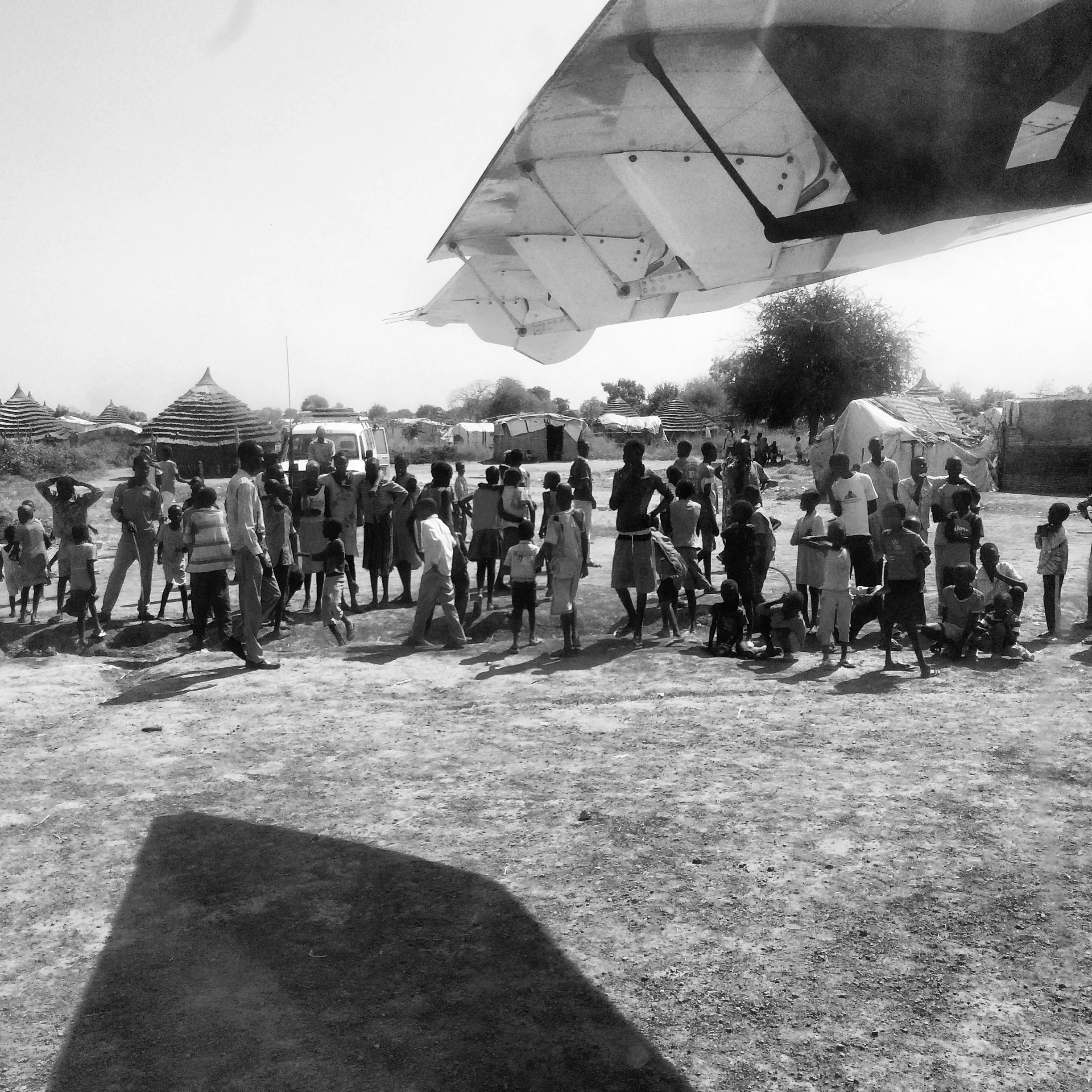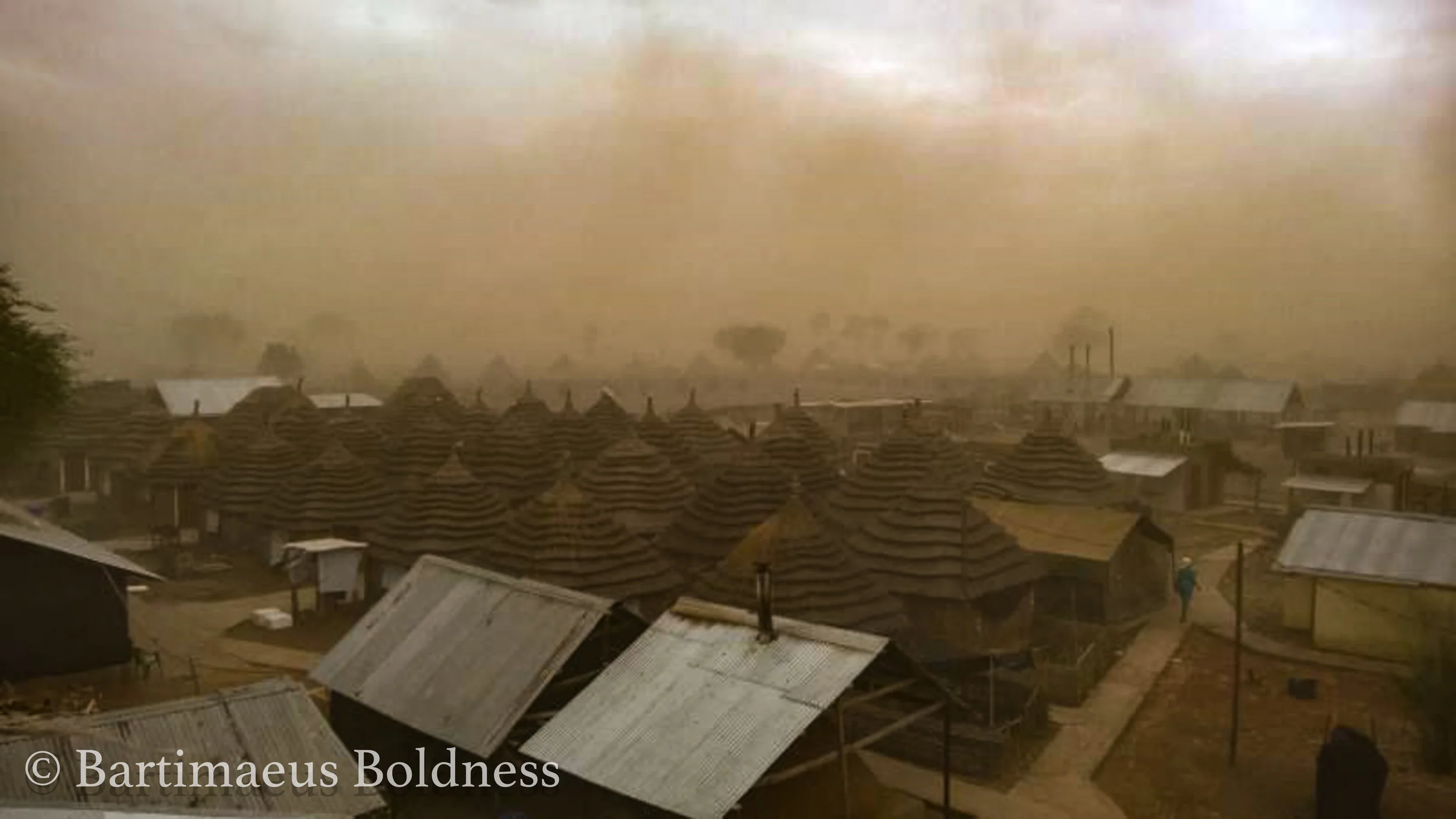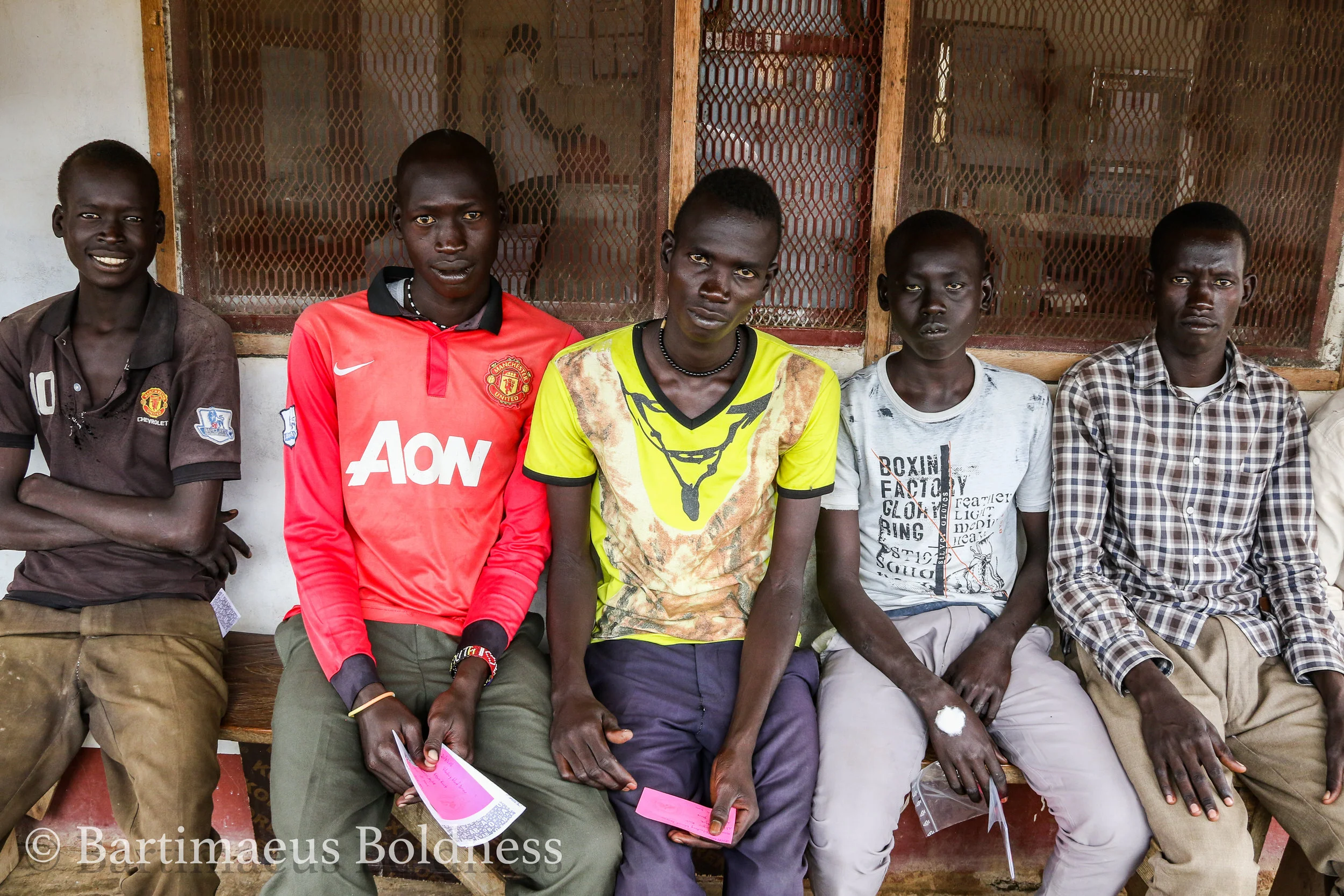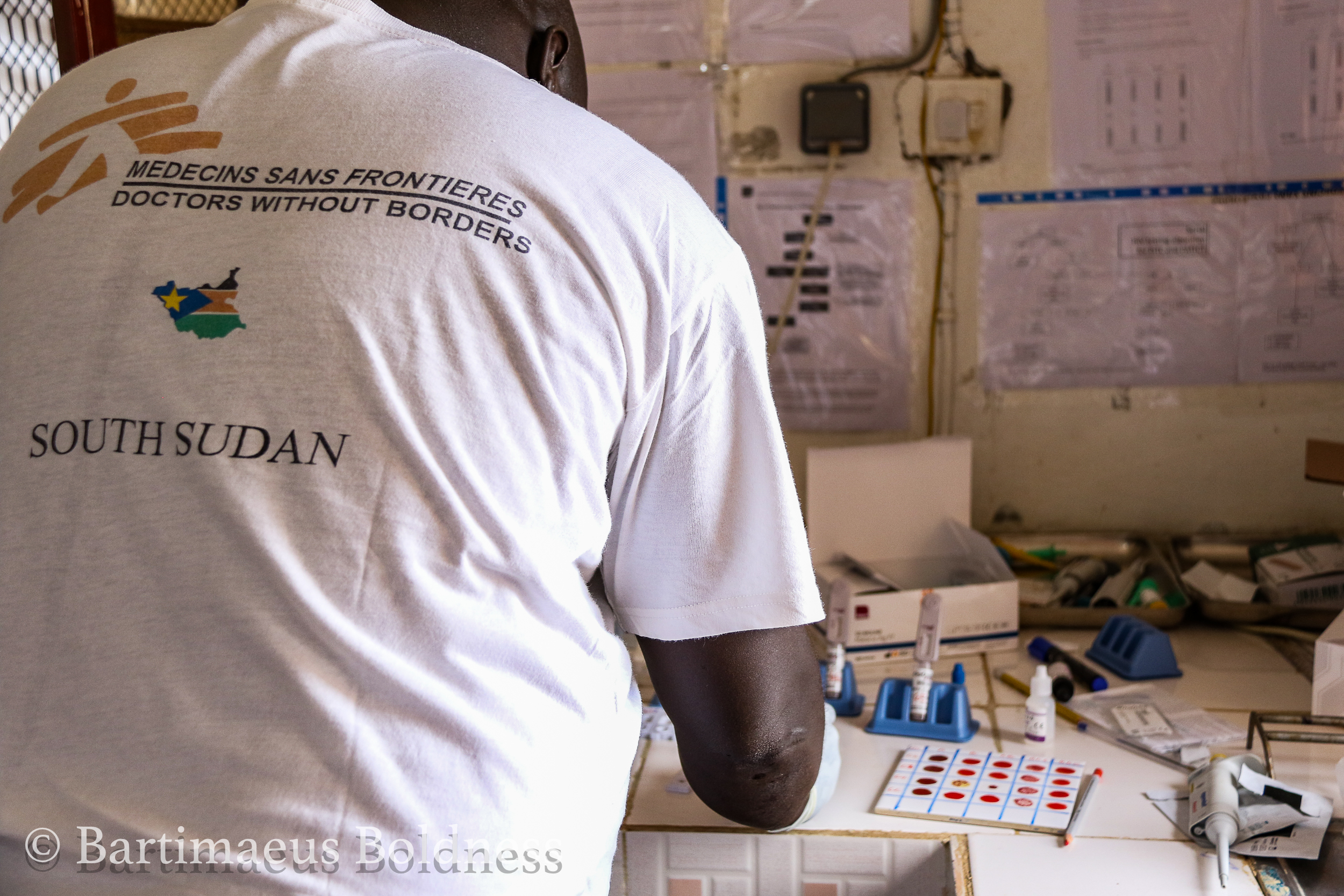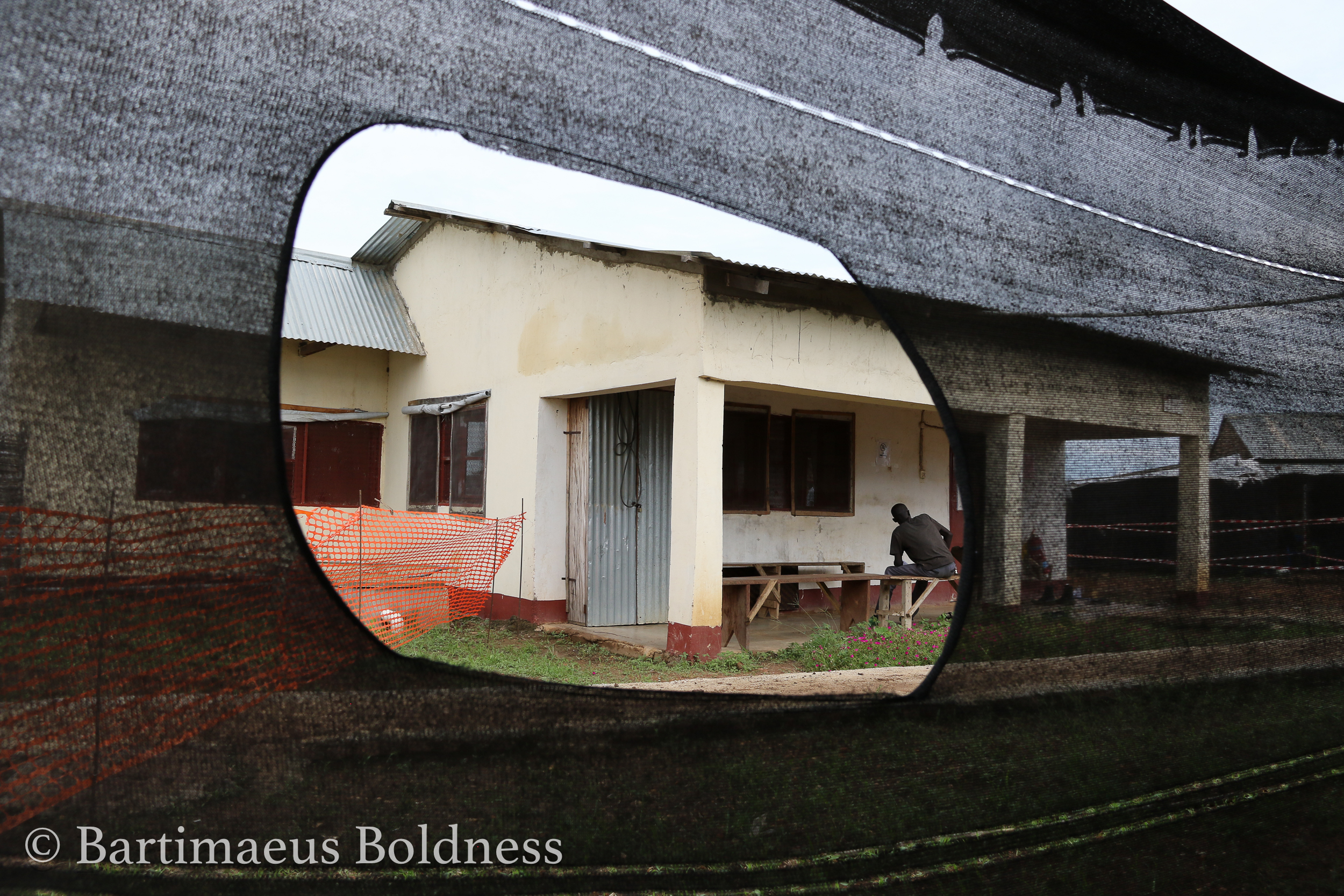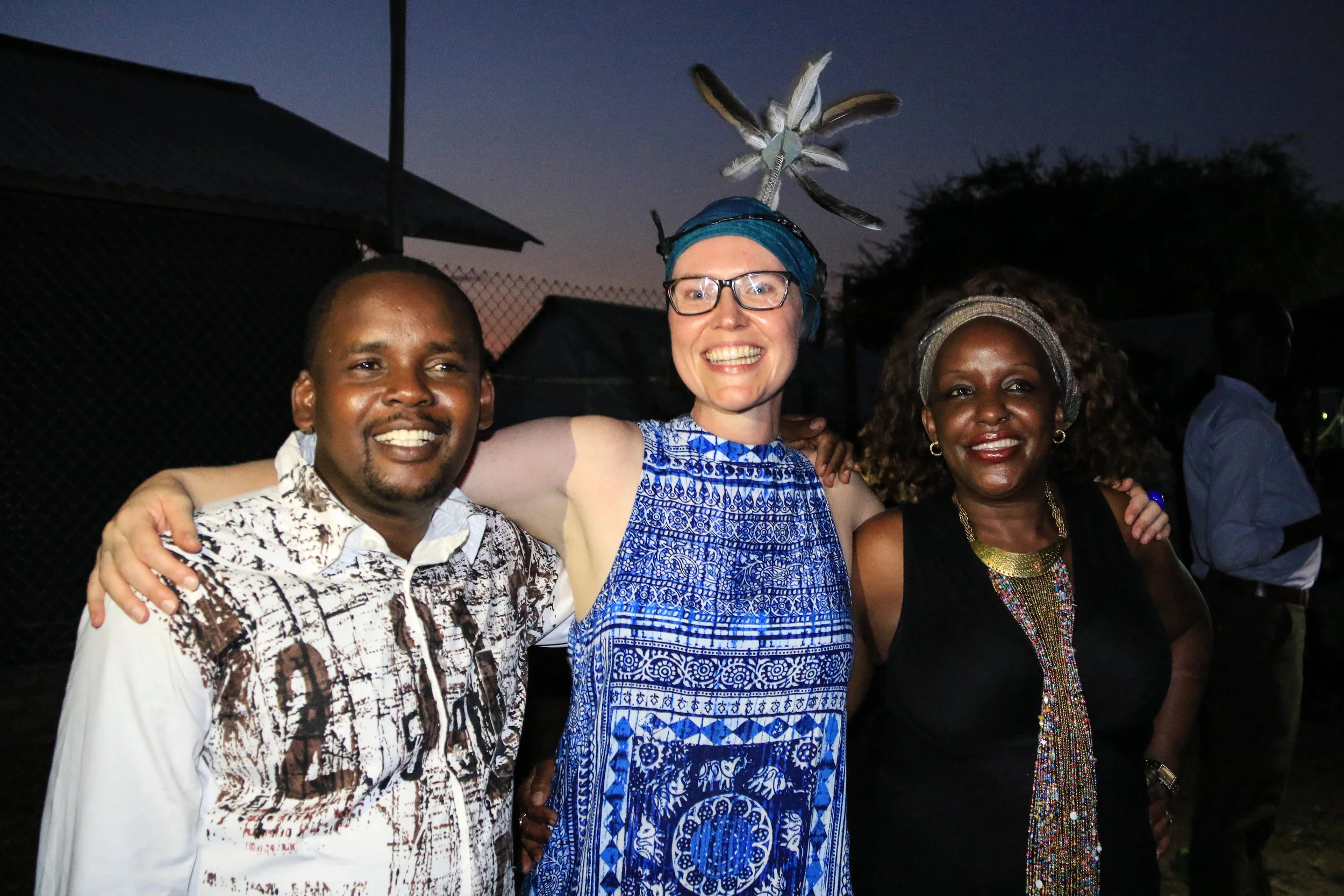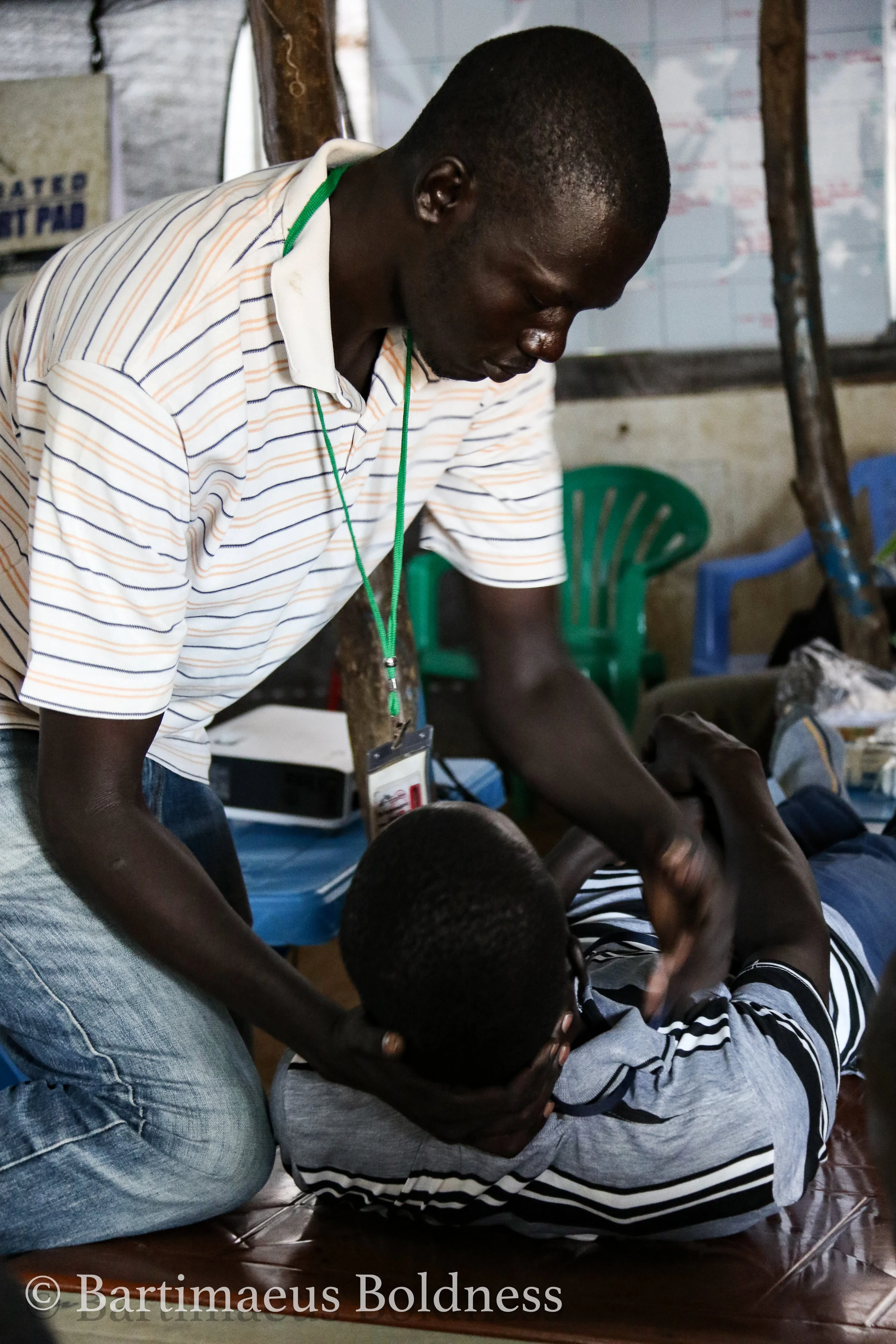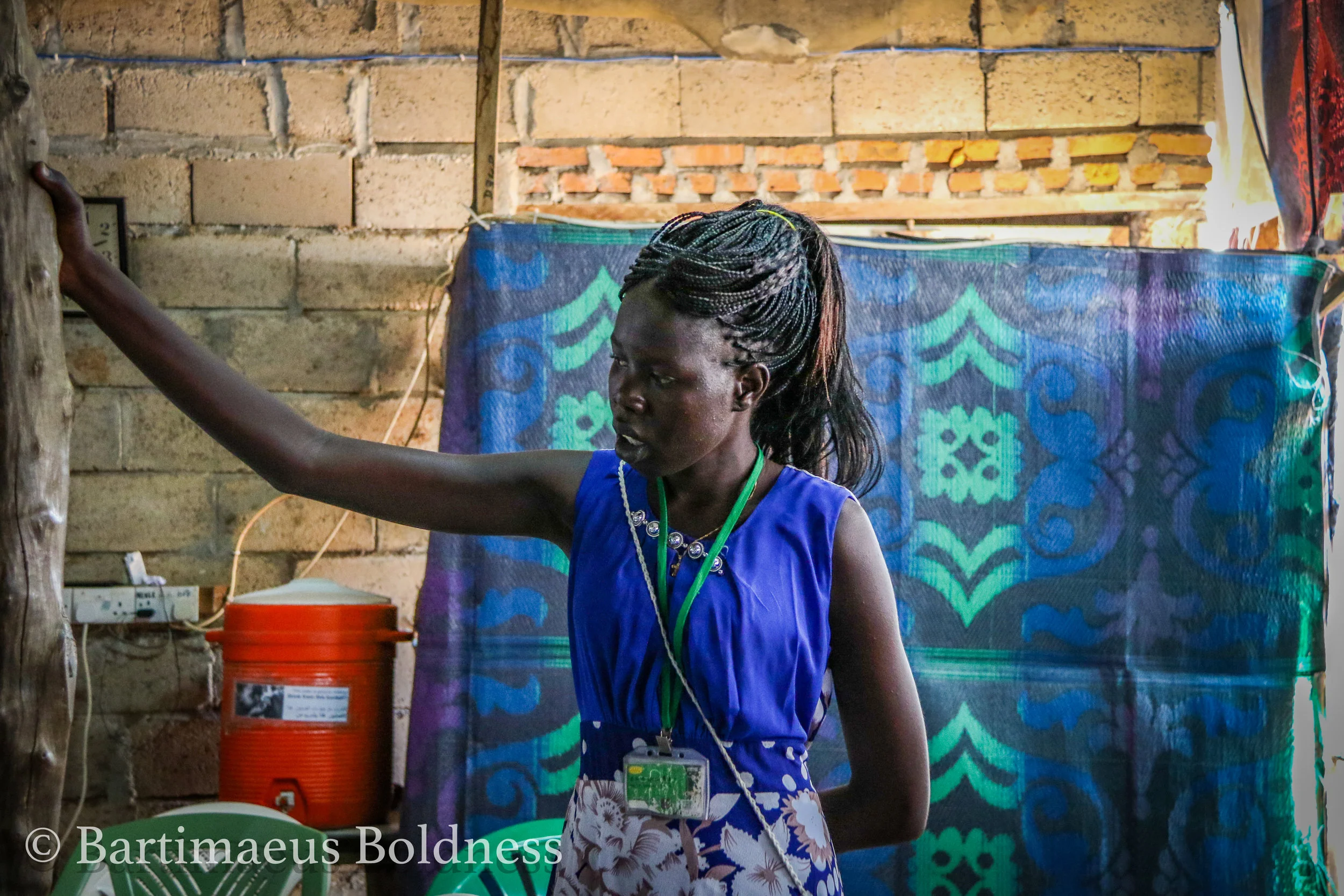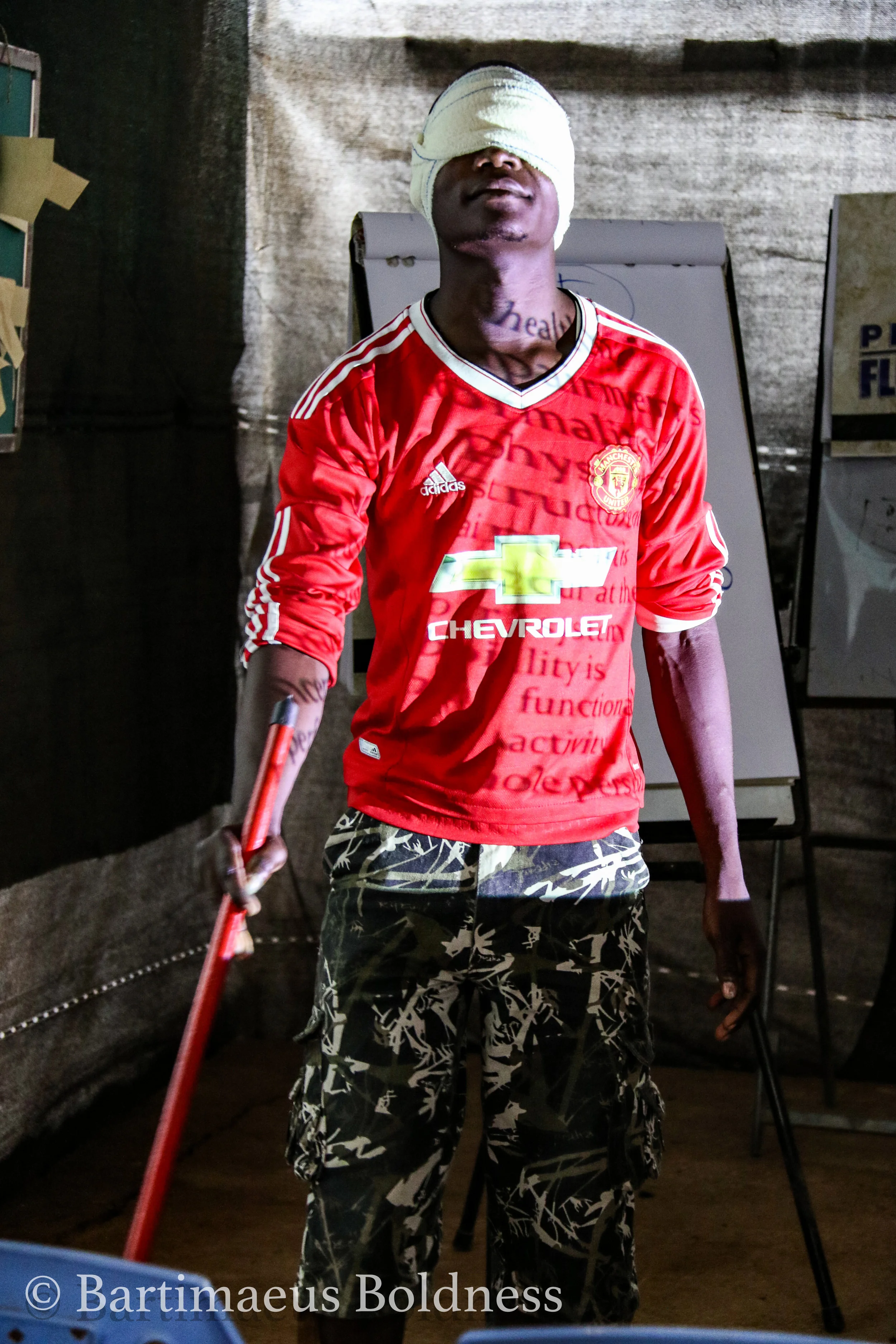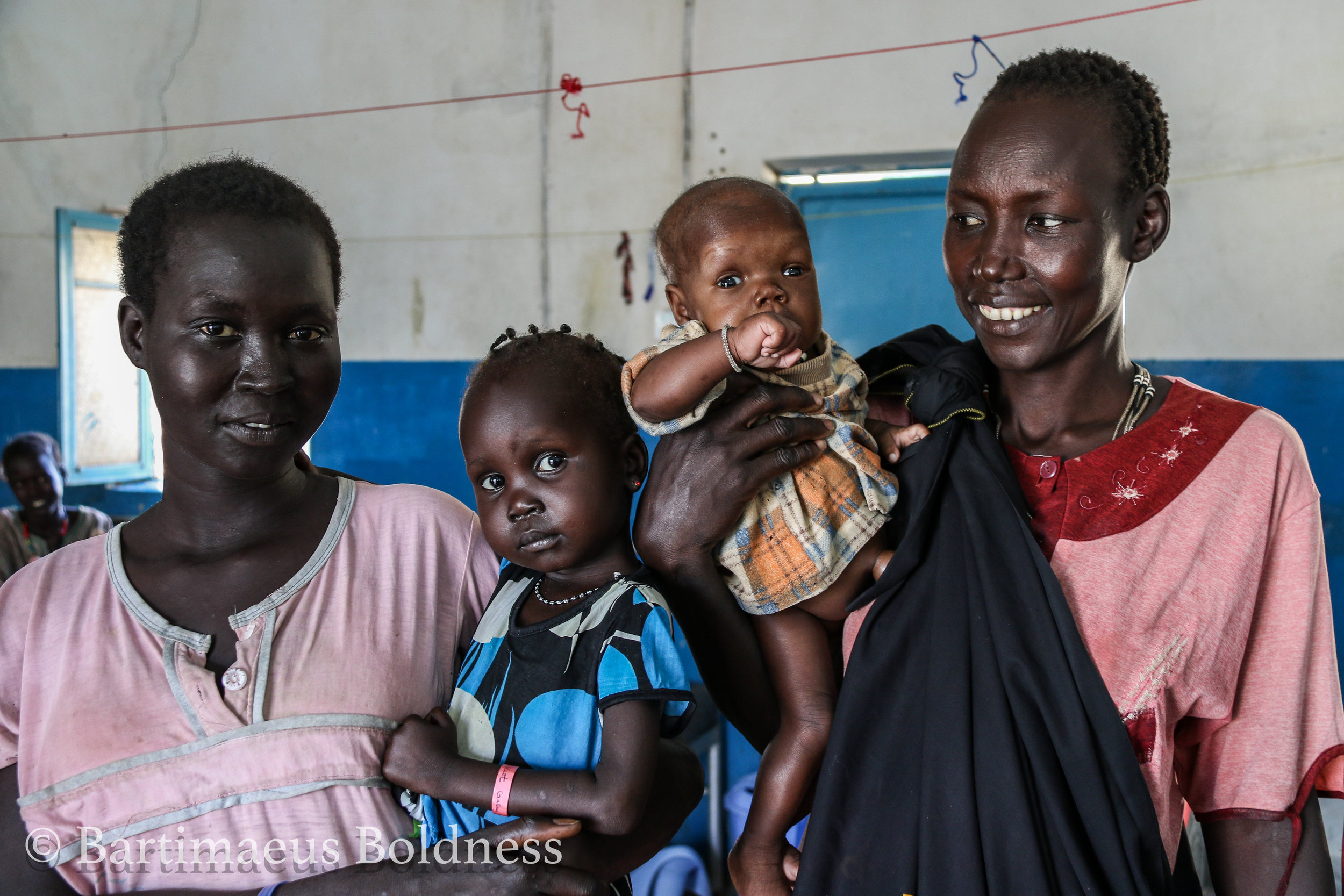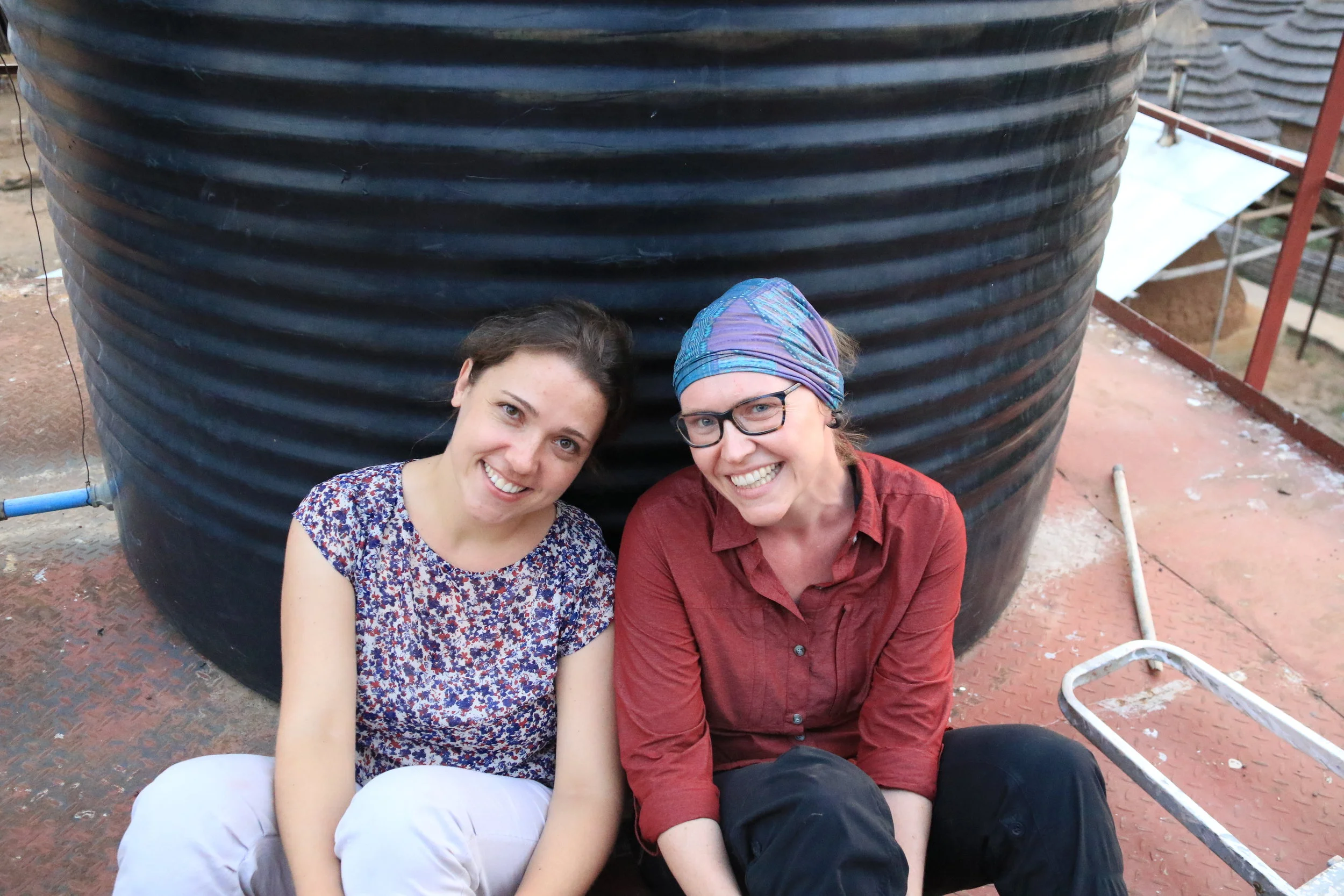Reflections from Tumultuous Times.
*The views expressed in this blog do not represent the views of MSF*
It is amazing how quickly and also how slowly 9 months can pass. Working with MSF (Médecins sans Frontières/Doctors without Borders) can feel like living in a time warp. By the time that I left South Sudan, it felt like I had been there for years. At the time of my departure, there was only one other colleague who I knew since the first day I arrived and this was because he had extended his contract. By the end of my 9-month assignment, I had both introduced myself and said my goodbyes to more people than I could remember and yet still I remained. On the other hand, where did the 9 months go? Wasn't it just yesterday that I arrived on that dusty landing strip with all of the children frantically darting off of the runway so as to not be swept away in the overpowering cloud of dust as the power of the plane's engine made contact with the parched earth? It is amazing what can transpire in 9 months.
During the past 9 months I had the privilege of meeting and working with some of the most incredible people. I ran what I would like to think of as a 'successful' training program for the national staff at a large field hospital and more importantly, I had a lot of fun doing it. I had no idea that I would LOVE teaching! I contracted Typhoid or maybe its ugly cousin and thought I was going to die. Being jet lagged and sleep deprived, I tripped and fell at a hot spring in Tanzania and managed to tear my meniscus and three ligaments...and then I proceeded to go on a safari where my friend and I were ambushed by baboons and where I had a close encounter with a hyena. I spent a month in Kenya trying to navigate physical therapy at Nairobi Hospital. I learned some pretty great Dinka dance moves and also picked up some useful Dinka, Arabic and Swahili. I went swimming in a water drum, provided training for over 800 people, almost got attacked by a swarm of locusts and lived in a tukul (typical South Sudanese hut) that was also visited by frogs, goats, cats, hedgehogs and scorpions. I missed 3 flights, traveled to 9 countries, spent an afternoon at a local Italian police station and did I mention that my car was stolen (I could have done without that one).
I would be lying if I said that few tears had been shed this past year. I would also be lying if I said that there were never times of great loneliness and despair. However, I would also be lying if I said that it wasn’t all worth it.
My story of the past year is a bit uncharacteristic. Unlike normal people, my holidays, which were meant to be times of refilling and rest proved to be times of deep pain; filled with unrelenting troubles and trials. On the contrary, my time in the field, although incredibly difficult, was a beautiful gift that filled me with great joy. I do not know why I had to experience such pain during the times which were set aside to be times of rest, but I do know that a piece of my heart has been left in South Sudan.
Leaving South Sudan was an incredibly emotional experience. As the wheels lifted off of the Sudanese soil, I looked out of my window over the community of Agok. My eyes said goodbye to the hospital, to the market, to the tukuls and to the airstrip. It was with a deep sadness in my heart that I left, knowing that out of all of the times that I had left Agok in the past 9 months, this time was different.
My goodbye party.
I began my time in Agok with feelings of trepidation, unsure of what to expect, especially after receiving some not so encouraging information…. What I found however, was a community full of incredible people with arms and hearts wide open, and minds so hungry to learn that I couldn’t keep up with the training requests. I was continually overwhelmed by the support and encouragement I received, from nursing supervisors who would come in on their days off for training or to help me administer tests, to the anaesthetist who offered to translate 50+ exams from Arabic into English during his free time. I remember offering a training for the Watsan (water sanitation) team on the basics of Tuberculosis after reports surfaced that the team were neglecting to clean the wards as they feared that they would contract TB. I will never forget teaching this group of 30+ as they sat rapt in their seats, completely attentive-hanging onto every word I said and offering up questions at every opportunity. Mid-way through my teaching, and elderly man stood up and began to cry, thanking me for seeing them as people worthy to receive training. He said, “we are the very least, we clean the latrines, people see us as nothing. Never before has anyone taken the time to give us education. We will forever be grateful”. I wanted to melt right there and what I really wanted to say was that according to Jesus, the ‘least of these’ are in fact the greatest. As a few tears dripped down my face, I took his hand in mine, looked him in the eyes and did my very best to tell him that he was valued.
My friend Nyandeng, one of the water & sanitation crew members.
Life was not easy. On the day that I left, temperatures had reached almost 48 degrees Celsius (118 Fahrenheit). With the heat came the sandstorms. The wind was constantly stirring up sheets of dust, which clogged every pore and covered every surface. It was impossible to keep anything clean. I was always dirty. My mattress had become a hole in which I slept. It was no wonder that more than half of us suffered from back problems. At night I would cover myself with a wet sheet, then position my fan so that it blew directly on me. Even this did little to help reduce the suffocating temperatures. During this time, we were also visited by hundreds of birds of prey. They descended upon our compound overnight. If you decided to carry your food outside of the dining tukul chances were that you would be attacked by a massive hawk nose-diving straight for your plate. During the rainy season the insects descended in overwhelming numbers and with them come the flash floods. Several of our tukuls were prone to flooding, bringing in snakes and frogs and sometimes black rainwater would collect in the thatched roofs and pour down on us while we were sleeping. When it rained, I had very little time to grab my rain boots and jacket and run to the training room to try to move all of the supplies to the center of the room so that they wouldn’t get rained on and destroyed. I especially loved exiting the shower at night where you had no option but to step directly into the floodlight and be instantly covered in bugs as they slithered down your wet body. The humidity was at times so high that my clothes would mold in my room in a matter of hours. From June-August the bees were relentless. It was almost impossible to eat as you had to continuously spoon them out of your food. At night, the hedgehogs would come out and if you were lucky they might come visit you in your tukul. The food could have been so much worse, but it was not great, especially if you are a vegetarian and many days I would get to the kitchen too late and would find absolutely nothing when I lifted the heavy metal lids. If we had received a fresh food delivery, then I could grab an apple or an orange but if it was the end of the week, my lunch or dinner would be whatever I could find in the pantry (wheatabix, instant noodles, bread with peanut butter). Everyone worked long hours. The work was exhausting and we saw far too many children die. Despite all of this, Agok was a beautiful place. It is also a place where lives are saved, where Dinka and Nuer come together in peace, as patients and as staff. It is full of passionate, intelligent and caring expats who also know how to be creative in order to make compound life enjoyable. And of course it is home to all of the incredible staff who are there before and after all of the expats arrive and depart. The hospital is staffed not only by National staff but also by many people who have either been relocated from other parts of the country or from neighbouring countries. These people make the hospital run. They are the heartbeat.
Sandstorm.
Maybe you’re reading this and thinking, ‘why the heck would anyone willingly choose this way of life?' I’ve even had people go so far as to insinuate that I must be slightly ‘off’, not quite mentally right.
But what about the millions of people who have no choice? For them, this is the reality every day and at the end they cannot go back home to a life of luxury and ease full of supermarkets with endless aisles of cereal options. The least that I can do is offer up what little I have to learn from and to serve these incredible people.
Goofing around in Triage with one of our nurses.
It’s not hard to understand why so many struggle with ‘re-entering ‘normal life and returning to their normal jobs. When you are out in the field, you experience these crazy low-lows but you also experience these incredibly high-highs, which are only made possible by the low-lows. After teaching people who are so eager to learn anything you can give to them because they have lived their entire lives in a country with no education system how can I possibly teach people back in the U.S who sit in class more interested in their smart phones than in what I am saying, because after all, they are the entitled ones, they are the customer, the consumer. How can one go from resuscitating babies every day to a hospital back home where if one baby dies, the parents file a lawsuit, even though you and your team did everything you could to save that child’s life?....to go from a country where death is unfortunately an accepted fact of life, to a country that cannot accept death in any of its forms. How can you return to a system where medical supplies worth thousands of dollars are thrown in the garbage after being touched, even if they remain enclosed in their original packing, meanwhile, in the country from where you just came, you are cutting maternity gloves down to use them for wound care, are rationing out isolation masks and cleaning supplies and praying that the next shipment of supplies comes in soon? What about going from working in a country where pain medications are a rare gift and where people accept their pain with an astonishing stoicism to a country where you are screamed at if you are 3 minutes late delivering a dose of oxycodone; a country that gives out narcotics like they are candy. These are just a few examples, so yes, I can completely understand why it is so difficult for aid workers to cease being aid workers. Normal life can be unbearable in comparison.
As I re-enter ‘normal’ life, or whatever ‘normal’ life is supposed to be, I reflect on this past year and see it for the amazing gift that it was. Returning to work in the U.S health care system, especially given the current political climate, will not be easy but it is my hope that the experiences of this past year can serve to fortify my work back in my home community of Seattle rather than to weaken it.













































